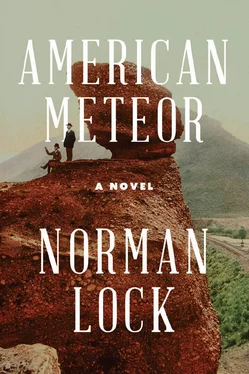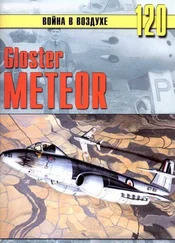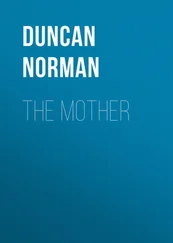I went outside to the barn to give the old man the feed order and found him asleep on a pile of sacks. I kicked him twice.
“Wake up, you lazy bastard!”
He opened his revolting old eyes and looked at me with unmistakable contempt, so that I had to kick him again. His eyes reminded me of ropy strands of egg white and bloody yolks. I wanted to scramble them with my fist. I don’t know why I should have felt such ill will, except that I’d overheard him tell the black kid who swept the place how I was a conceited jackass to wear my uniform and medal when I wasn’t a soldier anymore. I didn’t much care for his remark. I hate to think that I had a vindictive streak in those days, but I guess it’s true. If he were here, I’d ask his forgiveness; but he was no doubt shoveled rudely into the colored cemetery long ago.
I gave him the chicken farmer’s order for dried corn and left him to his hard work and chilly barn. I walked back over my tracks, now nearly obliterated by the falling snow. I flung some coal into the stove and sat on the high stool, going over things in my mind. As the room grew hot, I felt a momentary pang of remorse and almost went back to the barn to invite the old man inside to get warm. But I didn’t. Instead, I worried over the girl, the poor showing I must make in her eyes, my unused potential glimpsed on a wharf in Philadelphia, and my empty days. I had forgotten all about Lowry’s dire threat.
I closed early because of the snow, which sat on the railings and sills and leaned against the walls. The sky was white with it. Indifferent, I’d wintered in worse: in Pennsylvania with the regiment and in Brooklyn as a boy when the wind would drive snow into our room through a broken pane of glass. In winter, a tenement is a cold and inhospitable place. I walked down the middle of Fifth, fairly cleared by streetcars and wagons of the powdery snow. A block shy of Jefferson Street, Lowry bolted from a tobacconist’s doorway, where he’d been lying in ambush, having scouted my route from Bergman’s to the depot. He flung himself on me, accompanied by the shrill, unholy rebel yell, which had caused many a Yankee soldier to dampen his blue pants. I shot him down with the Colt before he could stick me with his bayonet.
The tobacconist, whose testimony was tainted by his friendship with Lowry, which he naturally denied, told the Springfield police that Lowry had gone out to speak to me about our differences. He’d kept his distance, he hadn’t yelled, and the bayonet had stayed tucked up in his belt. He swore I’d called Lowry names no man could tolerate, and then— “entirely without provocation and in cold blood”—I’d drawn my pistol, aimed, and shot him through the forehead. There might have been a morsel of truth in what he said, but Lowry had had no cause to jump me the way he did.
I remember the squeak of my boots on dry snow, the slap of my rubber coat, the creak of hinges on the tobacconist’s door, the snap of a tree branch, the rasp of my lungs drawing breath, and, after a curious sigh, the rattle of Lowry’s lungs just before he crumpled and fell.
Had I been an ordinary young man, doubtless I would have been tried as a cold-blooded killer, convicted, and taken in chains to Leavenworth to break rocks for twenty or thirty years. But I had been presented with the Medal of Honor by Ulysses S. Grant himself for my valor at Five Forks and had been handpicked by the secretary of war to serve in Abraham Lincoln’s honor guard. I could not be easily swept under the judicial carpet and left to rot among the dust weevils. I was a special case. It was decided I would remain in the city jail until the Lincoln parlor car departed Springfield for Omaha, with me on it. Banished like a medieval prince, I could never again set foot in Illinois.
While I waited for the Union Pacific to take the car away (is this what Spotswood had meant by “waiting”?), I wondered if my celebrity — the case had been a spectacle for some, a scandal for others — impressed the girl. She might be willing to share my exile. She might not be bothered by the parlor car’s morbid associations. Originally, it had been built as a sort of democratic triumphal car for the president to confer with his generals in the field and to see for himself the results of their campaigns. Fit for a pasha, it was too splendid for modest Old Abe, who in his lifetime had refused to use it. He could hardly do so in death, the commemoration of which would have embarrassed him by its extravagance. When he traveled to Gettysburg to deliver his address, he rode in a train such as anyone would take on a mundane journey to a commonplace destination. Death, however — its kingdom or realm — required a stylish conveyance. Mr. Lincoln’s funeral car was comfortable and smart. It had the makings of a bridal bower of bliss. The girl ought to jump at the chance to marry me. Such were the idiocies that passed through my feverish brain.
The girl faithfully visited me in my cell, once: to give me a newly baked apple pie and a letter, written in an awkwardly childish hand, informing me of her decision — before I’d so much as asked for one — to have nothing further to do with me because of the “shame and disgrace.” For the rest of her life, she wrote, she would regret the kiss she’d bestowed on me in a moment of pity. Galled, I swore to forget her and looked forward to putting ten or twenty years between us. The months spent in Springfield had been a disaster for me. Maybe if I’d dwelled on poor Lincoln’s cold dwindling inside his tomb, I wouldn’t have been such a damned fool. Remorse always comes late in the day.
Bored, lonely, and sorry for myself, I took Whitman’s book from my haversack. I stared at its green cover, scuffed and stained by time. Even a few months will leave its traces, provided they are packed with life. While I perused his catalog of humankind, my cell grew crowded with every type of man and woman, clamoring and jostling or nonchalant and imperturbable. I relished their stink and noise. In his Song of Myself (so unlike my braying), Whitman seemed like Christ. I’d have said “Buddha,” had I not been ignorant of any belief except my own. My faith in God and in his creatures may have been weak — a rope frayed to its breaking point by the strain of a small, mean, knock-about life — but I’d heard stories of a gentle Jesus from my mother. In my cell, I remembered how Whitman had leaned over my hospital cot to console me for my wound. I’d have given him my blessing, gladly, had he sauntered through the prison door, hooked his arm around my neck, and called me “comrade.” Of the poems (if that’s what they are) I read in jail, I recall this:
I am possess’d!
Embody all presences outlaw’d or suffering,
See myself in prison shaped like another man.
I waited five weeks for the train that would take the parlor car and me to Omaha. Maybe in Nebraska, I thought. Maybe on the other side of the Mississippi, I’ll find my own song. If there’s one to be found.
Omaha, Nebraska Territory, January 15, 1866– October 19, 1866
We should count ourselves lucky that Lincoln’s funeral car got sold to a railroad instead of a traveling freak show. Can you picture it, Jay: the “World’s Tallest Man” tucked up in Abe’s extra-long bed while pinheads gawk at themselves in the ornate mirrors? Our century didn’t value sentiment unless it was gold-leafed inside a Valentine. Remember the calendars put out by the packinghouses, illustrated with lambs frisking in meadows found only in Paradise? A thing or a person, who was accounted a thing by business, had to have cash value; otherwise, it was trash. The future— I’d have visions of it, though I couldn’t levitate like Daniel Dunglas Home — reeks of sentimentality, which papers over everything, no matter how dire. Maybe the nineteenth century was more honest because it made less a pretense of compassion. Entrepreneurs, financiers, industrialists, and company directors wrung money from the world, as you or I would juice an orange before tossing away the skin.
Читать дальше












